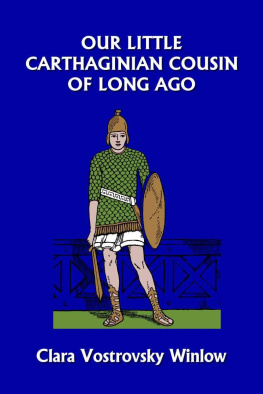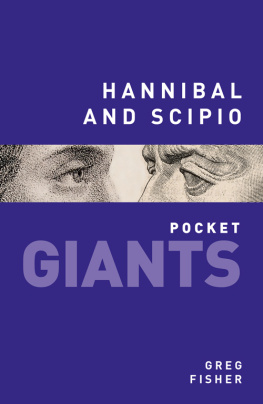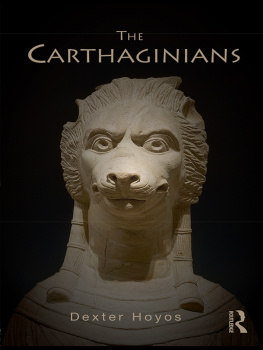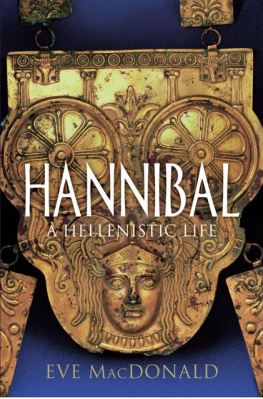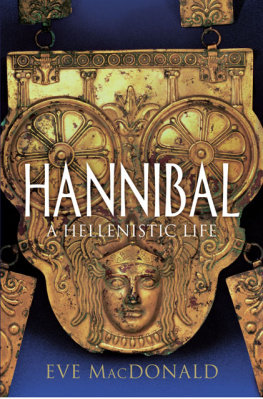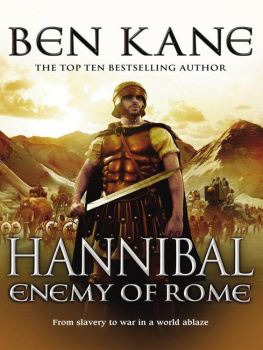Our Little Carthaginian Cousin of Long Ago
by
Clara Vostrovsky Winlow
Yesterday's Classics
Chapel Hill, North Carolina
Cover and Arrangement 2010 Yesterday's Classics, LLC
All rights reserved. No part of this book may be reproduced or retransmitted in any form or by any means without the written permission of the publisher.
This edition, first published in 2010 by Yesterday's Classics, an imprint of Yesterday's Classics, LLC, is an unabridged republication of the work originally published by The Page Company in 1915. This title is available in a print edition (ISBN 978-1-59915-286-8).
Yesterday's Classics, LLC
PO Box 3418
Chapel Hill, NC 27515
Yesterday's Classics
Yesterday's Classics republishes classic books for children from the golden age of children's literature, the era from 1880 to 1920. Many of our titles are offered in high-quality paperback editions, with text cast in modern easy-to-read type for today's readers. The illustrations from the original volumes are included except in those few cases where the quality of the original images is too low to make their reproduction feasible. Unless specified otherwise, color illustrations in the original volumes are rendered in black and white in our print editions.
Preface
The scene of this story is among the Carthaginians, an ancient people who lived more than two thousand years ago on the finest harbor in Northern Africa, and who undertook some of the most daring sea expeditions that the world has ever known; a nation of traders who founded so many colonies, amassed so much wealth, gained so much power, that Rome became envious and engaged them in three great conflicts.
These wars finally resulted not only in the Carthaginians being vanquished, but in one of the most complete annihilations of state and people, with their records of every kind, found anywhere in history.
Thus it is that almost the only accounts we have of this people have come to us through the "anger and envy and meanness" of their bitterest enemies. Notwithstanding this, one of their men has been accepted as a great world hero.
Hannibal belongs to the second of the chief Rome-Carthage conflicts (the Punic Wars), the most important of them all. Some one has spoken of this war as the struggle of a great nation against a great man. The Romans showed how they themselves regarded it by calling it "War with Hannibal."
What we know of the last Carthaginian defense of their homes (third Punic War), and still more of the wonderful genius and the unselfish patriotism of Hannibal is apt to win sympathizers for Carthage, despite her accusers. While striving to do her justice we must not forget two important points that seem proved against her as a whole.
One of these is the greed for gain which led t0 the placing of selfish interests above the welfare of the state. The other is the striking lack of respect for the rights of subject nations. Perhaps you can see in what ways these helped to bring about the country's destruction.
Contents
CHAPTER I
An Adventurous Voyage
"I AM eaten with envy." "Remember, I am counting on a handful of your spoils." "Bring me a nice young cannibal." "May the gods favor you, Hanno."
These, and other exclamations, shouted more than two thousand years ago, came from a group of boys on a pretty little Mediterranean Sea pleasure-boat, whose gay sails of fine embroidered Egyptian linen showed that it belonged to persons of wealth. They were evidently directed to a good-sized, rounded-beaked Carthaginian merchant vessel, with three banks of oars. This merchant vessel would have been conspicuous to-day not only because of its construction but also because of the huge, staring eyes painted on the high prow. Not satisfied with these for protection, there were also tiny images of war gods called Cabiri, placed at either end. At the stern of the boat stood a curly-haired youth of about twelve years who was not at all backward in answering the shouts as long as the smaller boats remained within hearing, and who afterward continued for some time to wave his arm so energetically in farewell that there seemed danger of its being hurled as a parting token to those whom he was leaving behind.
It was not until the little boat and all in it looked like a big black speck in the distance that he gave a last quick glance to where Carthage could just be outlined. Then, dropping his arm wearily to his side, he turned with a faint show of interest to studying the scenes through which they were passing.
It was high noon. The sun's rays beat strongly down on the boat from a cloudless, greenish-blue sky, so characteristic of that part of the world; the smooth waves seemed merely the calm rhythmic breathing of the great Mediterranean Sea, so gently did they rise and fall. Now and then a fishing-boat slowly passed, or a vessel laden with those odd shell-fish that furnished for the ancient world the famous Tyrian dye. Once the merchant vessel halted to salute gravely the sacred vessel which yearly carried tribute from Carthage to the patron god of the mother city, Tyre.
The pretty villas surrounded by their orange and olive groves, which glimmered and sparkled near Carthage and Utica under the brilliant rays of the African sun, grew more and more infrequent, until the thinly inhabited coast attracted mainly through an occasional aspiring date-tree and the distant misty spurs and peaks of the Atlas Mountains.
There was something about the warm sea air, and perhaps in the gentle motion of the vessel and the measured strokes of the oars by which it was propelled, that produced a feeling of sleepiness, which, after the afternoon meal Hanno found incontrollable. A passing sailor laughed at him as he sat nodding beside a basket of fruit that some one had given him as a parting gift. Hanno threw an orange at him, but the sailor escaped, still laughing, while the fruit rolled down on the deck. Hanno jumped up to get it, and, as he did so, he saw that there was a mass of canvas folded under the bench.
"That'd make a good bed," he thought. "Guess I'll try it," and, crawling under, he stretched himself down on it and closed his eyes. His uncle, a tall, broad-shouldered man, with long, compactly waved hair, a face not unlike the Jewish cast, and a beard arranged in three rows of tight curls, found his resting-place later, and having smilingly directed a sailor to throw a light blanket over him, left him to pass the night there.
Hanno did not awake until early next morning when, sitting up suddenly, he hit his head so hard against the top of the bench that the fruit still on it was scattered in all directions. It was not until then that he remembered where he was. Crawling out and rubbing the sore spots on his head he bade a passing slave pick up the oranges, figs and grapes with which the basket had been filled, and turned away for his morning wash and breakfast.
"I slept out-of-doors all night," he gleefully told his uncle, whom he found carefully finishing his toilet.
"Yes," his uncle answered, fastening the three collars which he wore over a loose tunic, and arranging a necklace of artistically worked gold over the collars, "it was a good beginning. This voyage is going to make a man of you."
"Make a man of him!" Hanno's face showed some surprise at the expression. He had felt as if he were already one ever since ten days ago when it had been definitely decided that he should accompany his rich adventurous uncle on one of his commercial trips to the distant and little visited Cassiterides or Tin Islands, away near Britannia. And, as if this were not enough, he could not forget that his uncle had whispered to him: "We may go still further this time,yea, even into the glorious amber fields in unknown Northern waters," which was a secret so wonderful, and made him so important in his own eyes, that it was only through fear of his uncle's anger, that he kept himself from openly boasting of it.

